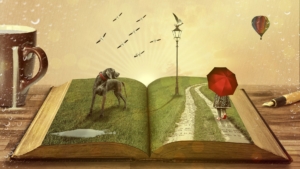Does Collaborative Fiction Writing Work
The Collaborative Connection
Writing is a solitary endeavor, most of the times. Each writer expresses their personal experiences, observations and opinions while they write. They claim ownership of their characters and stories and take pride in, or become protective of what they’ve created.
So is collaborative fiction writing possible? Does it work? Or, do too many cooks spoil the broth?
I have completed five novels in collaboration with another writer. Writing with a partner can be difficult and frustrating. However, it also has numerous benefits. 1) Speed up production by increased volume – two vs. one. 2) Strengthening tasks by working together – two heads are better than one.
Here are some of my observations about collaborative fiction writing:
- Inspiration – Having another person to discuss plot points or characters gives you a new perspective. Sometimes we are so close to our story focus our writing becomes narrow and we fail to see possible new directions to follow.
- Motivation – Working a full-time job plus normal daily living provide ample excuses not to write. Having another person wait for you to finish your part gives you a push to get it done. It also helps when the other person is a nag who won’t leave you alone and makes you feel guilty for not writing.
- New perspective through differences of opinion – Arguing over a story direction or character can give you a different perspective about your writing. Voicing strong opinions can help you to see your story from a different angle. You can talk (or argue) out problems and find a resolution if need be.
- Something to talk about – Writing with a roommate or partner gives you something to talk about on long car rides or when going out for dinner together for the millionth time. Discussing ways to kill your characters, or motivations for keeping them from falling in love, can be stimulating. It’s also amusing to observe the faces of other diners in your vicinity who listen in on your conversations.
- Provide a reason to avoid conversation – When you don’t feel like socializing collaboration gives you a legitimate reason to avoid talking with your partner. We always bring along notebooks and pens and if we don’t feel like talking, we write (or pretend to write). It works great.
- Trust, compromise, giving in – Successful collaboration requires building trust in your partner’s writing. Compromise may help your work. Sometimes giving in will end arguments and keep the project going.
- Letting go to move forward – Sometimes if compromise does not work you need to learn to let go of a collaborative piece and work on your own for a while. And as the dust settles, you can forgive each other and get back to the project. It becomes easier to join forces once again and combine the work you have done independently into a cohesive piece.
- Communication – It is important for collaborators to communicate while working on a joint piece of writing. Sometimes the best ways to keep lines of communication open are through the use of humor. Be flexible and do not get so attached to your fictional characters, so you put them ahead of real live people.
- Learning – Collaborating with another writer can teach you how to improve your own writing by observing their successes or failures and applying them to your own work. You can also learn through the shared research or life experiences each of you bring to the story.
- Research – Taking research trips together or spending time in archives hunting down research for your story can be exciting. Almost like an archeological dig during which you unearth some unusual item, character, letter, diary, myths, or legends that bring a new twist to your fiction.
- Slowing down production – having to wait for the other person to finish their part of the story can cause delays and loss of interest. By the time they finish their section you may have moved on to something new and fresh. Sometimes it is difficult to bring your mind and enthusiasm back to an old story.
- Disappointment – Working with a collaborator can lead to disappointment. This may be true if you have worked hard on a section and you become excited by the direction your characters are going. But then you share your ideas with your collaborator their comments show they didn’t share your vision at all. You may have to change to another direction.
Working with a writing partner who is also a life partner reminds me of an old movie, Best Friends, starring Goldie Hawn and Burt Reynolds. The story is about two screenwriters who lived and worked together. At one point they are locked together in a room and forced to finish writing a script. Too much togetherness leads them to argue and break up.
Collaborative writing doesn’t always work. It is important to make sure you don’t have too much togetherness. Having separate adventures, friends, experiences and interests allow you to bring unique perspectives to your collaborative work. This strengthens you work and gives your work more depth and emotion
More on Does Collaborative Fiction Writing Work
A Short Course in Writing: Composition, Collaborative Learning, and Constructive Reading
How to Write a Collaborative Novel
Tell everyone about your stories. Show them where they can buy your novel. Lure them in. More…
Need more help brainstorm the character traits in your story? More…
Don’t forget to edit your colorful character’s story. Do you use too many adverbs? Are you using the right words to describe them? More …
Start Writing Now – This book is for the dreamers who say one day they will write their stories and become a writer. Then they forget their dreams of writing. But they can write now – write those stories now. I mean right now.
How Not To Write A One Star Novel – Do you want to create a five star novel? Learn from other writers’ mistakes and prevent yourself from receiving any one star reviews for you hard work. Here is your free e-book.





Leave a Reply
Want to join the discussion?Feel free to contribute!